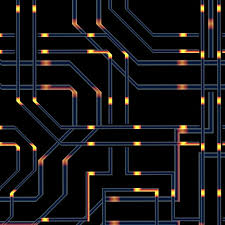
Breaking News
 4409 -- How Christians were Hoodwinked by the Scofield Bible
4409 -- How Christians were Hoodwinked by the Scofield Bible
Why Do They Hate Thomas Massie
 3 MILLION Epstein Pages Released - I Can't Unsee What I Found
3 MILLION Epstein Pages Released - I Can't Unsee What I Found
 David Morgan and Mike Adams Talk Silver Demand, Refinery Shortages,...
David Morgan and Mike Adams Talk Silver Demand, Refinery Shortages,...
Top Tech News
 How underwater 3D printing could soon transform maritime construction
How underwater 3D printing could soon transform maritime construction
 Smart soldering iron packs a camera to show you what you're doing
Smart soldering iron packs a camera to show you what you're doing
 Look, no hands: Flying umbrella follows user through the rain
Look, no hands: Flying umbrella follows user through the rain
 Critical Linux Warning: 800,000 Devices Are EXPOSED
Critical Linux Warning: 800,000 Devices Are EXPOSED
 'Brave New World': IVF Company's Eugenics Tool Lets Couples Pick 'Best' Baby, Di
'Brave New World': IVF Company's Eugenics Tool Lets Couples Pick 'Best' Baby, Di
 The smartphone just fired a warning shot at the camera industry.
The smartphone just fired a warning shot at the camera industry.
 A revolutionary breakthrough in dental science is changing how we fight tooth decay
A revolutionary breakthrough in dental science is changing how we fight tooth decay
 Docan Energy "Panda": 32kWh for $2,530!
Docan Energy "Panda": 32kWh for $2,530!
 Rugged phone with multi-day battery life doubles as a 1080p projector
Rugged phone with multi-day battery life doubles as a 1080p projector
 4 Sisters Invent Electric Tractor with Mom and Dad and it's Selling in 5 Countries
4 Sisters Invent Electric Tractor with Mom and Dad and it's Selling in 5 Countries
Quantum Computers and Applications Over the Next 5 Years

The overhead cost for error correction improves as gate error rate declines.
The Google Quantum supremacy demonstrations confirmed the quantum world has huge computing resources. We are in the noisy qubit era. We can explore heuristic quantum algorithms. We might get near-term quantum advantage for useful applications but this is not guaranteed.
Near-term algorithms should be designed with noise resilience (noisy qubits) in mind.
We will get good truly random number generation and will explore new quantum simulation of complex systems.
Lower quantum gate error rates will lower the overhead cost of quantum error correction, and also extend the reach of quantum algorithms which do not use error correction.
Dequantization: Practical uses of quantum linear algebra and of quantum-inspired classical algorithms are still unclear.



